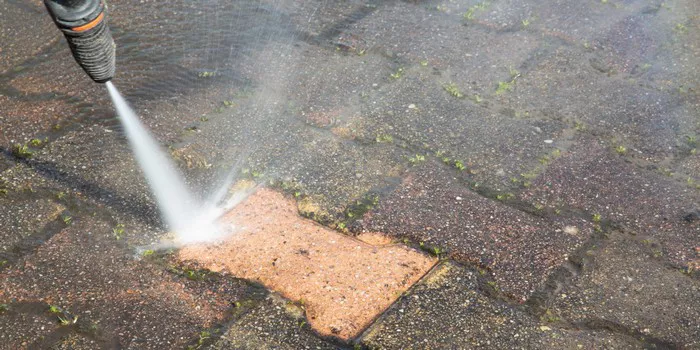Pressure washers are powerful tools designed to clean a variety of surfaces efficiently. They are versatile and used for tasks ranging from removing dirt and grime from driveways to cleaning siding. However, understanding how to operate and maintain a pressure washer is essential, especially when it comes to fuel types. One common question is whether a pressure washer requires mixed gas. This article explores the answer in detail, including the types of engines pressure washers use and the implications of using mixed gas.
Understanding Pressure Washer Engines
To determine whether a pressure washer takes mixed gas, it’s important to understand the type of engine it uses. Pressure washers typically come with two types of engines: gas-powered and electric. Among gas-powered models, engines can either be two-stroke or four-stroke.
Two-Stroke Engines
Two-stroke engines are designed to operate on a mixture of gasoline and oil. This combination serves as both fuel and lubricant for the engine. These engines are compact and lightweight, making them popular in tools like chainsaws and small generators. However, they are less common in pressure washers.
Four-Stroke Engines
Four-stroke engines, on the other hand, run on regular gasoline. They have a separate lubrication system, which eliminates the need for mixed gas. These engines are more fuel-efficient and environmentally friendly compared to two-stroke engines. Most modern pressure washers are equipped with four-stroke engines.
Does Your Pressure Washer Require Mixed Gas?
The need for mixed gas depends entirely on the engine type. If your pressure washer uses a two-stroke engine, then mixed gas is required. For a four-stroke engine, standard gasoline is used, and oil is added separately.
Identifying Your Engine Type
To determine whether your pressure washer takes mixed gas, consult the user manual or check the engine label. Manufacturers typically specify the type of fuel and oil required for optimal performance.
If the label mentions a fuel-to-oil ratio (e.g., 50:1), it is a two-stroke engine.
If there is no mention of mixing oil with gasoline, it is likely a four-stroke engine.
Why Is the Engine Type Important?
Using the wrong type of fuel can damage your pressure washer’s engine. Mixed gas in a four-stroke engine can clog components and reduce performance. Conversely, failing to mix oil in a two-stroke engine can lead to overheating and severe engine damage.
Advantages of Two-Stroke and Four-Stroke Engines
Both engine types have advantages that make them suitable for specific applications. Understanding these benefits can help you choose the right pressure washer for your needs.
Two-Stroke Engine Benefits
Two-stroke engines are simpler in design and easier to maintain. They provide more power relative to their size and weight, making them suitable for portable and lightweight equipment. However, their requirement for mixed gas and higher emissions make them less common in pressure washers.
Four-Stroke Engine Benefits
Four-stroke engines are the preferred choice for most modern pressure washers. They are quieter, more fuel-efficient, and produce fewer emissions. The use of standard gasoline simplifies fueling, and the separate oil reservoir ensures proper lubrication without mixing.
Mixing Gas and Oil for Two-Stroke Engines
If your pressure washer requires mixed gas, it’s important to prepare the mixture correctly. The fuel-to-oil ratio specified by the manufacturer must be followed precisely to avoid engine issues.
Steps to Prepare Mixed Gas
Measure the correct amount of gasoline and two-stroke oil based on the recommended ratio.
Use a clean, approved container to mix the fuel and oil.
Shake the container thoroughly to ensure the oil is evenly distributed in the gasoline.
Storing Mixed Gas
Mixed gas should be stored in a tightly sealed container to prevent evaporation and contamination. Use the mixture within a few weeks to maintain its effectiveness.
Common Issues with Incorrect Fuel Usage
Using the wrong fuel in your pressure washer can lead to several problems. Understanding these issues can help you avoid costly repairs and extend the life of your equipment.
Engine Damage
Using unmixed gas in a two-stroke engine deprives it of lubrication, causing the engine to overheat and potentially seize. On the other hand, using mixed gas in a four-stroke engine can lead to carbon buildup and clogged fuel lines.
Reduced Performance
Improper fuel can affect the pressure washer’s performance, causing it to run inefficiently or fail to start altogether. Consistently using the correct fuel ensures optimal performance and longevity.
Voided Warranty
Many manufacturers void warranties if the wrong fuel type is used. Always adhere to the manufacturer’s guidelines to protect your investment.
Electric Pressure Washers: An Alternative
For those who prefer a hassle-free option, electric pressure washers are a viable alternative. They do not require gasoline or oil, making them easier to maintain. While they may lack the power of gas models, they are ideal for light to medium cleaning tasks.
Advantages of Electric Models
Electric pressure washers are quieter, lightweight, and environmentally friendly. They eliminate concerns about fuel types, making them a popular choice for residential use.
Limitations
Electric pressure washers rely on a power source, which limits their mobility. They are less powerful than gas models, making them unsuitable for heavy-duty tasks.
Conclusion
Whether a pressure washer takes mixed gas depends on its engine type. Two-stroke engines require a mixture of gasoline and oil, while four-stroke engines run on standard gasoline with separate oil lubrication. Understanding the difference is crucial to maintaining your pressure washer and ensuring its optimal performance. Always refer to the user manual for specific fuel requirements and follow best practices for fueling and maintenance. By using the correct fuel type, you can extend the lifespan of your pressure washer and achieve the best cleaning results.
Related topics:
How Does a Pressure Washer Surface Cleaner Work?

